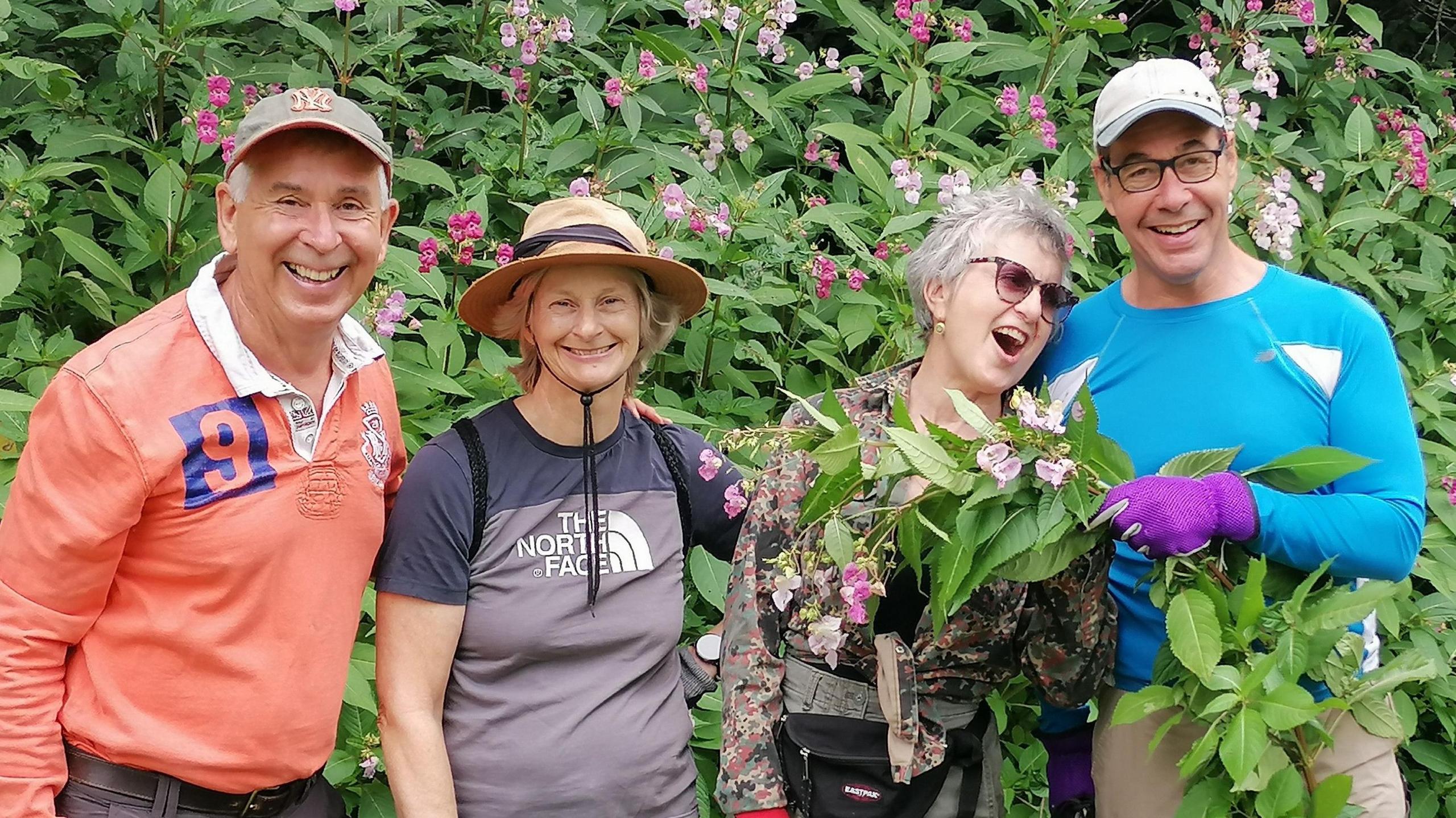Citizen science tackles invisible river pollution
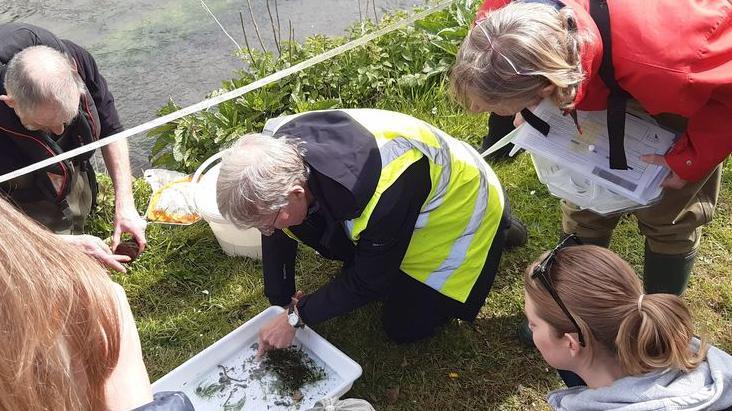
The presence of invertebrates are an indicator of river health and pollution
- Published
Sewage in our waterways has long been a major concern but, in Dorset, hundreds of volunteers are tackling a bigger, but lesser known, threat to our rivers.
According to Dorset Wildlife Trust (DWT), agriculture accounts for about 60% of the pollution in the county's rivers.
Add that to medicines, household detergents, garden chemicals and common pet treatments and the problems start to stack up for these fragile eco systems.
Two citizen science projects - Riverfly and Water Guardians - are working to tackle this combined and often invisible threat and protect these precious habitats.
The Riverfly Partnership is a national project with surveys in Dorset managed by DWT.
About 120 volunteers monitor 67 key sites in the county, taking monthly samples to measure the presence of aquatic invertebrates, providing an early warning system for potential pollution incidents.
"Aquatic insects are the foundation of the river eco system," explains Hannah Divine of DWT.
"A lot of them are really sensitive to any forms of pollution."
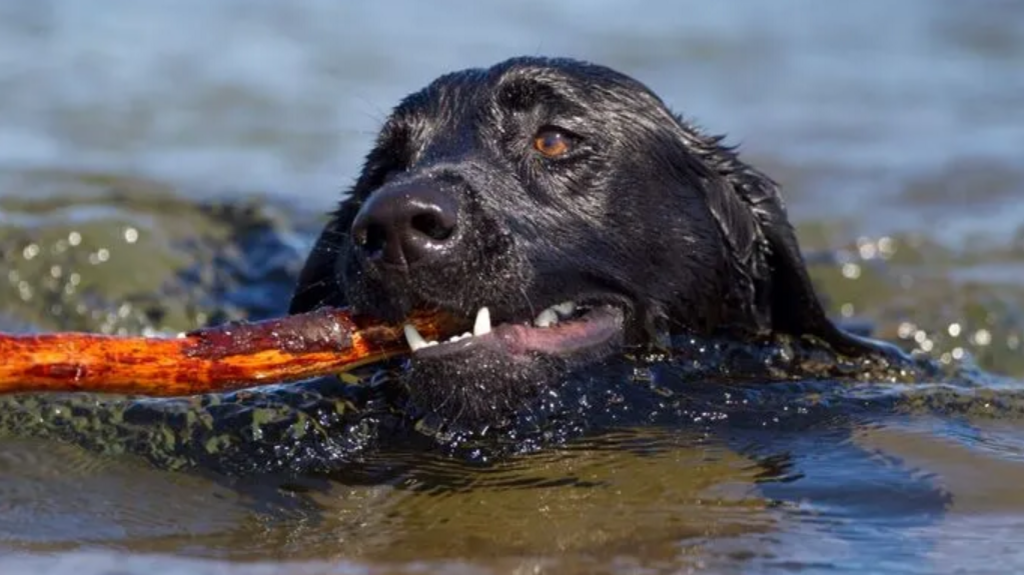
Many pet owners are unaware that some flea treatments contain bee-killing pesticides
DWT says only 15% of the county's rivers are in good ecological health and none are in good overall health.
Patricia Zimmerman, who has been volunteering for about four years, describes the insects as "the canaries of the river".
"It takes a bit of time to learn the invertebrates but, if you do it regularly, you can spot trends very quickly and notice if anything has changed."
Volunteers don waders to carry out the monthly surveys from spring to autumn, with concerns reported to water companies or the Environment Agency.
But much of the pollution is not from a single source, it's a build-up of everyday chemicals, referred to as diffuse pollution.
Many pet owners are unaware that some flea and tick treatments contain neonicotinoids - bee-killing pesticides that are banned in agriculture.
The chemicals have been detected in Dorset's rivers and streams in concentrations exceeding safe limits for wildlife.
They are deposited by animals drinking and bathing in the water, and by their waste, washed down drains or leached through the soil during rainfall.
"It's really detrimental to wildlife," said Ms Divine.
"A lot of aquatic insects are really sensitive to any forms of pollution. People just do not know and think they are doing the right thing by their pets."
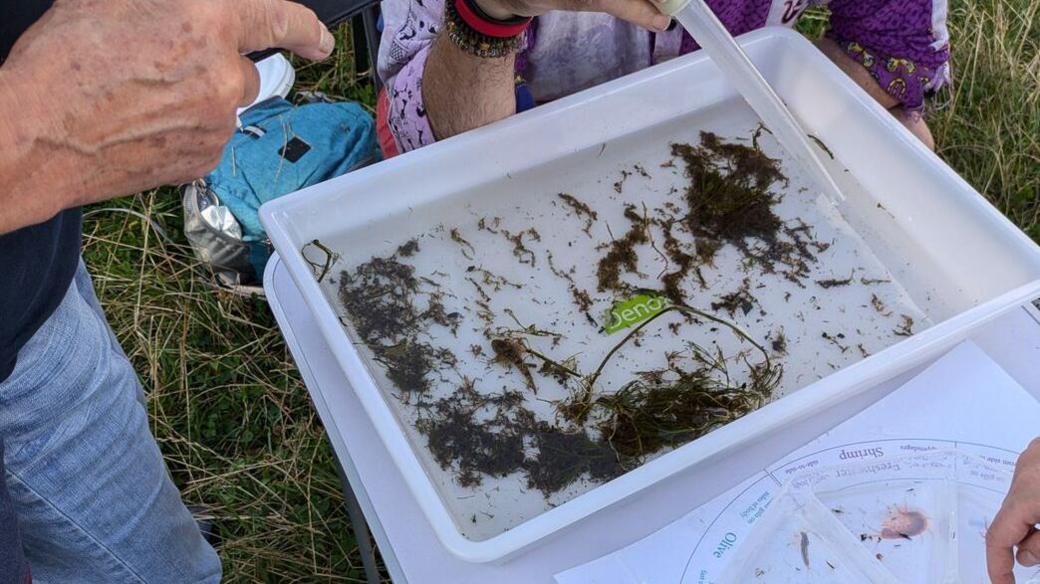
Volunteers are trained to identify aquatic insects and plants
Hormones from human medicines are also having an effect, along with the build-up of everyday chemicals used in homes and businesses.
DWT also manages the county's Water Guardians - a year-round project funded by Wessex Water involving 86 volunteers who, between them, walk nearly 100 miles (160km) of their local river banks each month looking for visible signs of pollution.
Ms Divine, the project's co-ordinator, said: "We have got a hotline to report to Wessex Water and they come and investigate, usually within 24 hours, and they keep us updated.
"We do lots of additional training, like aquatic plant ID. The teams also do Himalayan balsam pulling so they are involved in invasive species management as well."
Monitors have also detected other problems, including acute spills and farm pollution, which have been investigated by the Environment Agency.
Ms Zimmerman, who volunteers for both projects, has spent her entire career in science and environmental education but says anyone with an interest can take part.
"It's a nice thing to do if you are passionate about the rivers," she said.
"I've got several sites I monitor and do it with different people. I've made lots of new friends, it's a great social thing.
"Having taught about the environment for so many years, it was something I wanted to keep doing when I retired.
"And what could be nicer than sitting beside a river on a sunny day?"
Get in touch
Do you have a story BBC Dorset should cover?
Related topics
- Published13 October
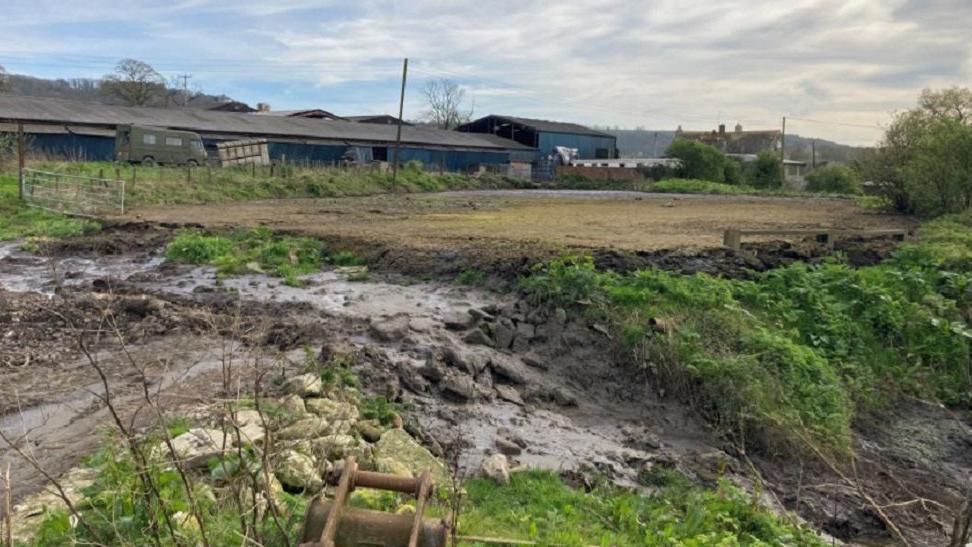
- Published27 October
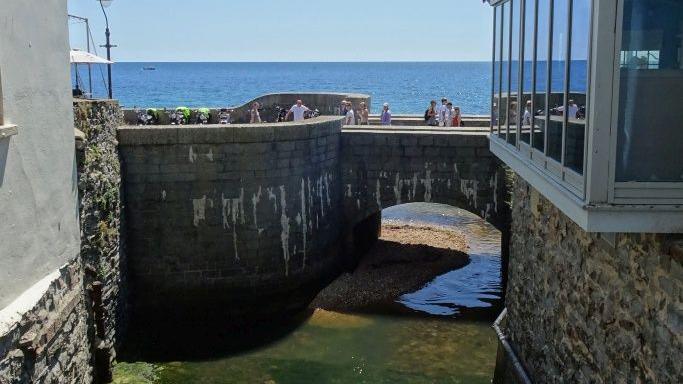
- Published2 August
